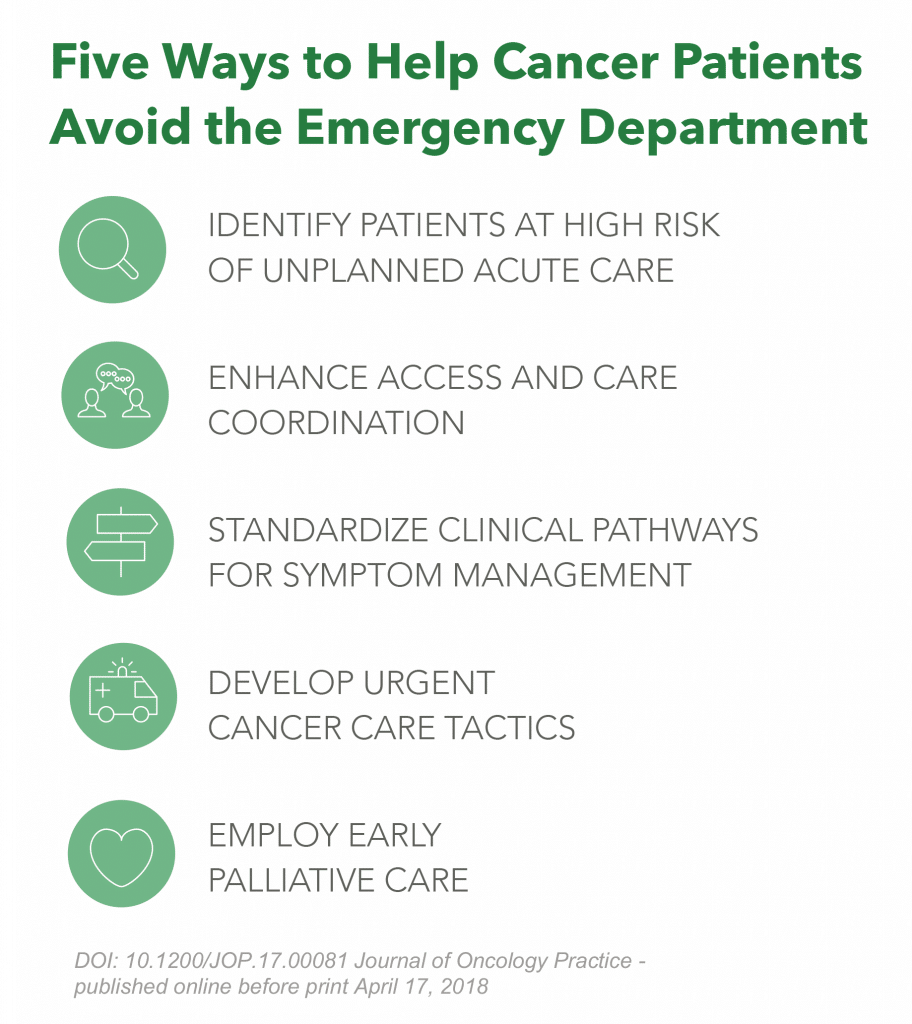Researchers at the University of Pennsylvania recently published their findings regarding methods for cancer patients to avoid the emergency department, titled “Best Practices for Reducing Unplanned Acute Care for Patients With Cancer.” The results, published in ASCO’s Journal of Oncology Practice, included five key findings:

- Identify Patients at High Risk of Unplanned Acute Care
- Enhance Access and Care Coordination
- Standardize Clinical Pathways for Symptom Management
- Develop Urgent Cancer Care Tactics
- Employ Early Palliative Care
The researchers noted that implementation of these will require a large investment and additional evaluation is needed. While that is likely the case for some organizations that are working with complicated data sets and disparate systems, for others it’s not.
As many cancer care providers work to identify ways to prevent unnecessary emergency department visits and subsequent hospitalizations as they focus on the shift to value-based care, Patient Relationship Management (PRM) has emerged as an effective tool.
Rather than a solution for storing data like an EMR, a PRM activates information. With a software platform that not only collects data, but also facilitates coordinated care, unnecessary emergency department visits to go down.
A PRM prioritizes patient issues according to severity, monitors high risk patients closely, includes embedded symptom management pathways, gives the patients access to remote monitoring tools and personalized information about their diagnosis and treatment. It’s simply a better way to deliver care – every incoming patient issue goes through the same system, nothing gets missed each member of the care team has a clear view of what needs to be addressed each day. Some features of a PRM include:
Proactive Triage
- Consistent symptom management with pathways
- Faster interventions to prevent emergency department visits
- Patient needs prioritized according to risk and severity
Remote Monitoring
- Improves oral adherence with reminders scheduled according to unique patient need
- Prompts patients to report side effects on a regular basis so they can be quickly managed
- Gives patients an easy way to stay connected with their care team
Improved Patient Experience
- Personalized care with digital tools tailored to each patient
- Open communication results in timely assistance
- Access to support 24/7 including their health record and educational resources
With a PRM, patients receive coordinated and comprehensive care and the care team has the tools they need to work efficiently and at the top of their license. Interested in learning more? Contact us today to schedule a demo.
